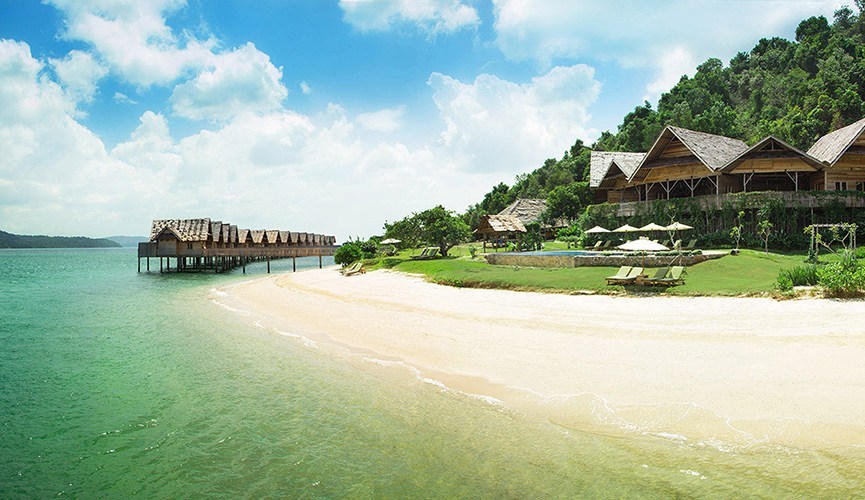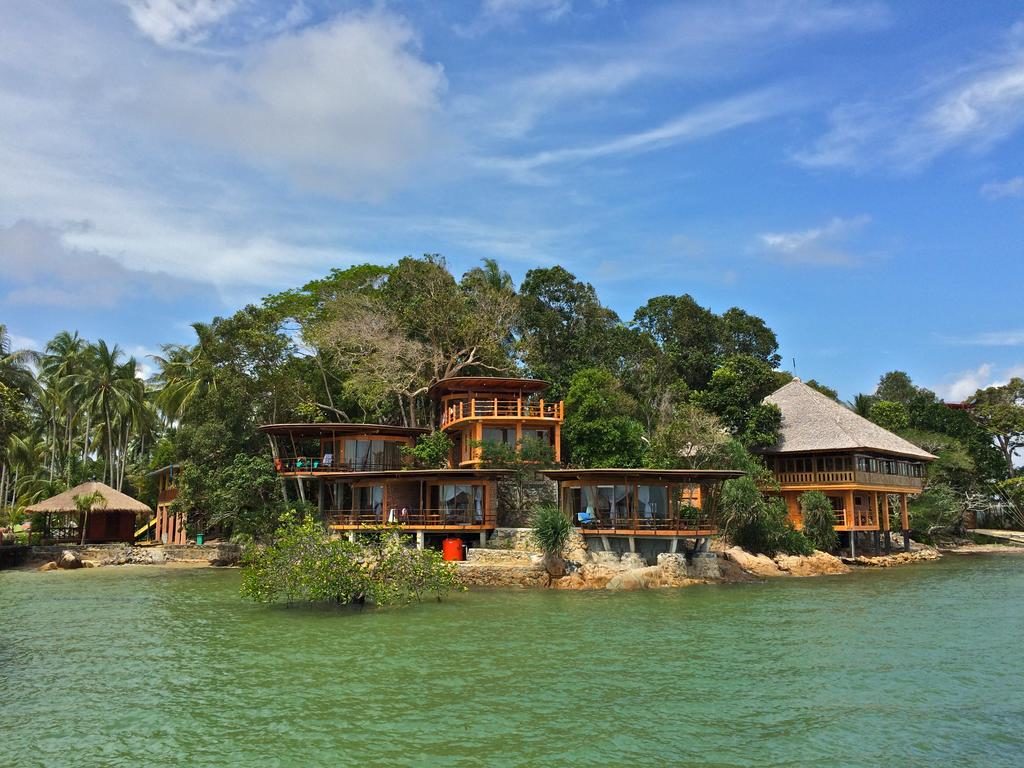I’ve always dreamt of travelling as a child. I would read about the natural wonders of the world, watch documentaries about UNESCO heritage site. And I would think of the day that I get to visit these places.
I haven’t had the chance to visit most of these places yet, but these places have risen tremendously in popularity. And this is creating some issues and unraveling the importance of ecotourism.
Mass tourism influx into poorly regulated areas (otherwise known as overtourism) has led to many undesirable impacts. The unnecessary crowding of initially serene locations. The disruption of local holiday rentals by the influx of bigger hotel chains. And most importantly, environmental degradation.
In South-East Asia, overtourism has heavily resulted in the loss of pristine natural environments. This has led to the closure of some destinations like Boracay Island and Maya Bay.
The dense tourist populations destroyed the beauty of these beaches and adversely affected marine life in the coastal coral reefs. While the former has reopened with many new regulations, Maya Bay will remain shut for the next few years (and great news – sharks have returned to the bay!).
Meanwhile, ecotourism is slowly gaining popularity in recent years as people grow to be more environmentally conscious.
So what is ecotourism?
The International Ecotourism Society (TIES) defines ecotourism as “responsible travel to natural areas which conserves the environment and improves the welfare of local people”. Ecotourism sites generally adhere to these few guidelines below.
Primarily nature-based: These destinations are dependent and enhanced by nature. Activities that can be done at these places are conducted in a natural setting and they should prioritize the environment while providing a service.
Socio-cultural sustainability ideas: Good ecotourism is often community-based, such as engaging locals to be involved in the tourism activities in some way or another such as being tour guides for a place they know so well.
Focus on learning and education: Many of these sites often have seasoned tour guides or at the very least some information boards/pamphlets to share more information and knowledge.
In these places, strict regulations regarding visitation numbers must be adhered to. This ensures an appropriate balance between protection and tourism activities.
What are some places that can be considered ecotourism destinations?
Here are some examples of ecotourism destinations you can consider on your next trip!
National Parks: By promoting natural areas as a tourist attraction, people can be more inclined to support conservation of wild spaces and species. Park rangers are sometimes locals as well!
Marine Protected Areas: There is often high biodiversity in these places due to them being well-managed, and therefore tourist activities are strictly regulated in these parts of the sea.
Sanctuaries: Some ecotourism sites are sanctuaries for protected biodivsuersity and species. Opening up these conservation areas to (a limited number of) tourists can expand visitors’ knowledge on the importance of protecting natural areas, which in turn encourages them to contribute (through donations or hands-on volunteering) and share their newfound knowledge with friends!
Cultural ecotourism: This form of ecotourism involves tourists paying to learn more about a community’s culture or heritage, and offers incentives to keep traditions alive.
At this point, I think it’s important to highlight that while some destinations are eco-friendly, it’s what you do there that defines your identity as an ecotourist! For instance, if you were to go snorkelling in a marine protected area, it would be pretty silly to kick coral reefs while wearing non-reef safe sunscreen and still consider yourself an ethical ecotourist.
How can we support ecotourism destinations?
Do your homework and research well
As much as I try to reduce my environmental impact as I travel, choosing the wrong destinations can easily undermine all my efforts. While planning your itinerary, ensure that the places you visit adhere to environmental principles and engage tourists in contributing practices. Depending on the country, some tourism offices or departments provide valuable resources that collate attractions endorsed as eco-friendly destinations.
Another way of knowing that you are going to an eco-tourism site is to ensure that these places are certified! In a study in 2002, The World Tourism Organisation actually identified over 60 sustainable and ecotourism certification programs – most operate on a local or regional scale, while a few, including Green Globe 21 and Global Sustainable Tourism Council are more popular global ecotourism and sustainable tourism certifications.
Sustainable Tourism and Ecotourism
- Sustainable tourism focuses on travel that has minimal impact on the sites visited.
- Ecotourism focuses on environmental and ecological conservation.
While the concept of sustainable tourism and ecotourism is slightly different, certified destinations are likely to adopt sustainable practices too.
Avoid greenwashing sites
Do note that not all attractions labeled as ecotourism sites truly fits the label of a truly eco-friendly environment. Due to the lack of regulation, the term ecotourism has been loosely used. This can also be loosely defined as “greenwashing”. A marketing scheme that entices visitation based on a false image of environmental conservation.
On a recent field studies trip to the Philippines in which I participated in, we visited a supposed conservation area for tarsiers (a small nocturnal rodent endemic to Bohol), but the enclosure was so populated and noisy with visitors, and there were observable signs of the tarsiers’ poor physiological health. Definitely not a true conservation site!
Therefore. do read up trip reviews written by past travellers to get a better understanding of their management and practices and sustainable or educational travel programmes.
Stay at eco-resorts
Eco-resorts tend to minimize their impact on the environment as businesses and practice environmental responsibility. Other than energy-efficient lighting and reusable tableware, some go beyond by serving locally sourced food. Some even provide eco-friendly toiletries and recycling facilities. They may also be involved in conservation activities, and contribute to the local economy by employing locals at fair wages.
There are quite a few eco-friendly resort options available near Singapore! Take Teluna Resorts at Batam, Indonesia for instance – their focus on waste reduction is clear through their actions of composting organic waste and the minimization of single-use plastic bottles and straws. They also support the local artisan community by finding viable markets for them to showcase their talents and products. For instance, the resort’s furnitures are upcycled from old boats!
Traveling could be an earning thing too, you can visit booking.com affiliate for more tips.

Credit: telunasresorts.com
Another interesting vacation option is LooLa Adventure Resorts. They boast various eco-friendly systems including a rainwater collection system, solar-powered systems, and interestingly, a chemical-free air conditioning system that uses solar freezing of ice!

Credit: booking.com
A quick internet search will get you even more ideas on where to stay on your next vacation trip!
Leave no trace behind
Even at the destination, you have the obligation as a visitor to leave no trace behind. This especially rings true in natural ecotourism sites where the activities you engage in are entirely up to you, such as hiking, sightseeing or camping. Park rangers do not have the responsibility to pick up after your trash – you do!
With so many people trampled on and picked the flowers at the wildflower fields in California when they bloomed so beautifully earlier this year, park rangers had to close down the area. In some national parks in the United States such as Yellowstone or the Grand Canyon, travellers do not heed park regulations, going too close to animals, entering or even flying drones in restricted areas – this can all affect the beauty of the place.
Have the clear conscience of not destroying the natural beauty of the place as well by following the rules set by authorities!
Prioritise visits to ecotourism attractions on your travels. It benefits the environment and the community, and there’s a good chance you’ll take away knowledge and appreciation for nature! Even if you are not going to an ecotourism site, you can still do your part as a responsible eco-warrior! Leaving no trace behind, reduce your waste intake, and in general, partake in environmentally friendly actions!


important information
This is the cry of the day. Whether Eco. Sustainable or Responsible whatever it is leveled we need to save the planet, environment, it’s natural sites and the culture and heritages. We need the people power, engage local people and stop over use of the sites. We should build a network to help people willing to address to this issue.
Hi! I love how informative and great your articles are. Can you recommend any other blogs that share recipes of Indian Curries or authentic Indian cuisine? Thanks a lot!